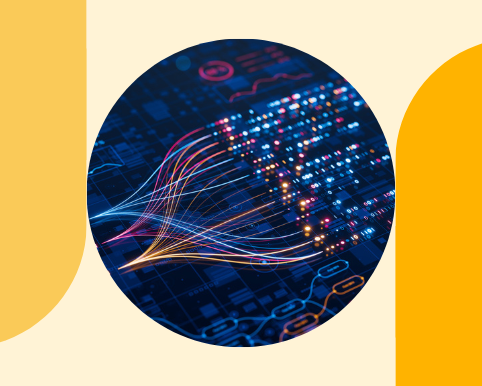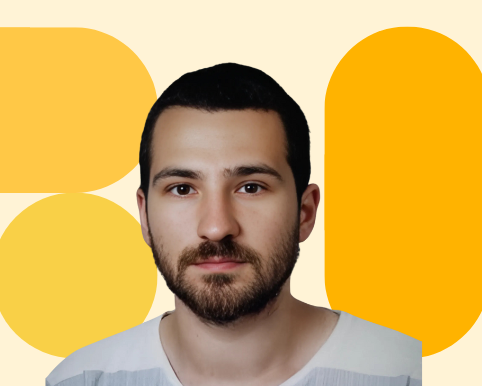What does a bioinformatician do?
Meet a bioinformatician in genomic research services
By Florence Cornish and Miruna Carmen Barbu on
The bioinformatics research services team work to allow high-quality research that uses the unique datasets at Genomics England. They engage with academic researchers and pharma partners to accelerate scientific discoveries that benefit patients.
We spoke to bioinformatician, Miruna Carmen Barbu, about her role and the importance of upskilling in programming.
So first, what is a bioinformatician?
A bioinformatician is a specialist who combines computer science and biology. They analyse large data sets for clinical and research purposes.
Part of this includes creating and maintaining databases of biological information – in our case genomic and health data – and developing and using mathematical models and coding for analysis.
What does your typical working day as a bioinformatician at Genomics England look like?
My role at Genomics England involves providing research services to external researchers and industrial partners. This can be anything from answering a quick query about our dataset, assembling cohorts of interest, or running complex analyses.
The role requires an in-depth knowledge of the genomic, clinical and disease data stored in our National Genomic Research Library.
For the most part, my typical day involves programming and writing; I write and run code just about every day. In addition to completing data analysis for our partners, I also dedicate time to writing reports detailing the methods used and results provided, along with providing visual representations of the data.
Furthermore, I am also part of a few projects that we consider to be “in continual development”, such as code automation for a specific type of data. I work on these projects wherever I can, often during our time on Fridays for learning, innovation, and improvement.
What education did you have to become a bioinformatician?
I started out by doing an undergraduate degree in psychology, as I was interested in studying mental health. There I developed an interest in psychiatric conditions, which led me to do a master’s degree in cognitive neuropsychology.
Throughout my master's, I learnt that very little progress has been made in our understanding of the causes of psychiatric conditions. However, by studying their genetic architecture, we may provide additional insight into their causes & treatments. It is this that led me to pursue a PhD in psychiatric genetics, specifically in Major Depressive Disorder, which solidified my interest in the field and allowed me to develop valuable skills in bioinformatics.
What skills do you think are most important to be successful in your role?
As a bioinformatician in the research services team, programming is a core aspect of what I do. I would say that logic and attention to detail are very important, along with knowledge of statistical tests and where it is appropriate to use them.
In addition, a large portion of time is spent communicating with our partners to ensure that their query is answered thoroughly and efficiently. Being able to communicate with individuals from different backgrounds, especially those who may not possesses knowledge of bioinformatics, is absolutely vital.
If you had to choose a career outside of the life sciences, what would it be?
A big hobby of mine is spending time outdoors, so it would probably be something related to nature or plants.
To meet more members of the team or see bioinformatics research, check out our other blogs.
Stay tuned for a short video later this year about what a bioinformatician is and what they do on our YouTube!


